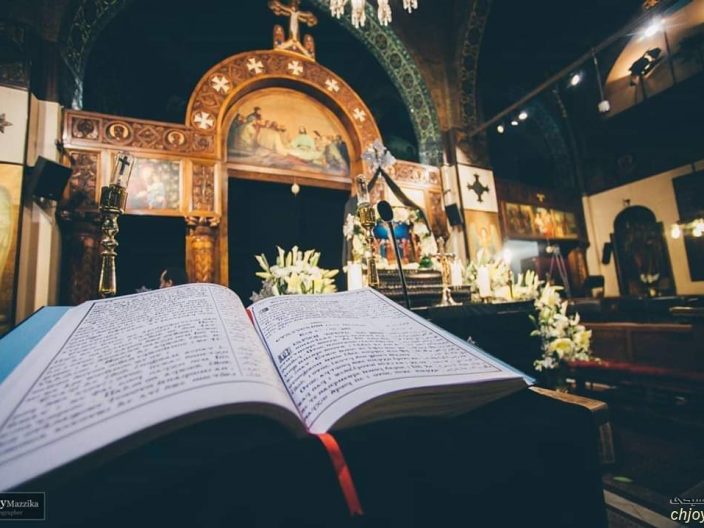Coptic Orthodox Christianity represents one of the oldest branches of Christianity, deeply rooted in Egypt’s rich cultural and spiritual heritage. As one contemplates the essence of Coptic Orthodox faith, one may wonder: what differentiates this ancient Christian tradition from other denominations? What unique perspectives and practices does it offer? Exploring these questions reveals a tapestry of history, theology, and liturgical beauty that has shaped not only Egypt but also the global Christian community.
To comprehend Coptic Orthodox Christianity, we must first delve into its historical context. The roots of this tradition can be traced back to the apostles, specifically to Saint Mark, who is believed to have brought Christianity to Egypt in the first century A.D. This early inception laid the foundation for a distinct Christian community that flourished as Egyptian culture intertwined with Christian beliefs. The Coptic Church’s unique identity began to form, characterized by its use of the Coptic language, derived from ancient Egyptian hieroglyphs, and its adherence to orthodox teachings distinct from those of other Christian denominations.
The term “Coptic” itself derives from the Greek word “Aigyptios,” reflecting the connection between the Egyptian people and their Christian faith. Over centuries, Copts faced diverse challenges, including periods of persecution and theological disputes, particularly during the Council of Chalcedon in 451 A.D. The Church rejected the council’s definition of the nature of Christ, leading to a schism that persists to this day. This schism laid the groundwork for the uniqueness of the Coptic Orthodox theology, focusing on Christology—understanding the nature and person of Jesus Christ in the light of one united divine nature.
The Coptic Orthodox Church is led by the Coptic Pope, who resides in Alexandria, a city of great significance within Coptic history and theology. The succession from Saint Mark to the current pope establishes a continuity of leadership that underscores the Church’s commitment to its ancient roots. The Copts regard the pope as a spiritual leader akin to the patriarchs of early Christianity, akin to an unbroken lineage, which remains central to their identity.
At the heart of Coptic Orthodoxy is a profound liturgical tradition that emphasizes the sacramental nature of worship. The Divine Liturgy, the central act of worship, is a beautifully orchestrated ceremony that draws upon ancient practices and rich symbolism. Copts participate in the sacrament of the Eucharist, viewing it as a continuation of the Last Supper. The liturgy features hymns sung in both Coptic and Arabic, invoking a sense of timelessness as worshipers engage with the rhythms of faith through music, prayer, and communal involvement.
Coptic icons, rich in spiritual significance, serve as more than mere art; they are windows into heaven—visual representations of the divine. Each icon tells a story, often depicting saints, Christ, and the Virgin Mary, adorned with vibrant colors and intricate designs. The Coptic artistic tradition reflects the theological convictions of the Church, communicating spiritual truths to the faithful. The reverence for icons also illustrates the Coptic understanding of the sacredness of creation, aligning with the broader Christian belief in God’s immanence in the world.
The Copts have developed a distinct theological framework that integrates scripture, tradition, and the writings of early Church fathers. The importance of monasticism, regarded as a means to achieve spiritual perfection, is a hallmark of Coptic spirituality. The monastic communities founded by saints such as Anthony the Great and Pachomius contributed significantly to the theological discourse and spiritual vitality of the Church. These ancient practices instill a sense of asceticism and humility, reflecting the teachings of Christ and the call to carry one’s cross. Such devotions contribute to a vibrant communal life, with a strong emphasis on love, charity, and social justice.
On the global stage, Coptic Orthodox Christianity presents a fascinating intersection of ancient faith and contemporary relevance. Copts have made significant contributions to the broader Christian discourse, particularly regarding interfaith dialogue. The overarching message of love and acceptance that permeates Coptic theology has become increasingly necessary in today’s pluralistic society. As they navigate the realities of modern existence, Copts invite others to consider the merits of coexistence and mutual respect among diverse faiths.
In contemporary Egypt, the dynamics of Coptic Orthodox Christianity face both challenges and opportunities. While the community has grappled with persecution, particularly since the 2011 Arab Spring, it has also demonstrated resilience. The Coptic Church’s commitment to social justice initiatives, community-building projects, and humanitarian efforts underscore its active role within Egyptian society. This equilibrium between faith and action is a testament to the enduring legacy of Coptic Orthodoxy, exemplifying the premise that faith is not merely a personal affair; it is a catalyst for social change.
One must not overlook the vibrant cultural expressions within the Coptic community, encapsulated through festivals, music, and culinary traditions. Celebrations such as the Feast of Nayrouz, which marks the Coptic New Year and the commemoration of martyrs, exhibits the integration of faith and culture. These occasions foster a sense of belonging, reinforcing communal ties that bind individual lives to the broader narrative of the Church.
As we extend our understanding of Coptic Orthodoxy, we must ask ourselves: can an ancient tradition provide insights for contemporary spiritual seekers? The Coptic Church’s emblematic focus on community, resilience, and faithfulness invites much contemplation. In an age of disunity and fragmentation, the Copts’ emphasis on love, charity, and forgiveness can serve as a beacon of hope, illustrating the enduring power of Christian witness.
In summary, Coptic Orthodox Christianity encapsulates an ancient yet thriving tradition that offers profound insights into the human experience of faith. With a rich legacy steeped in history, theology, and culture, the Copts challenge us to explore the lived reality of loving one’s neighbor, transcending cultural divides. As Christianity continues to unfold throughout the world, Coptic Orthodoxy remains a testament to the transformative power of faith grounded in love and community.



